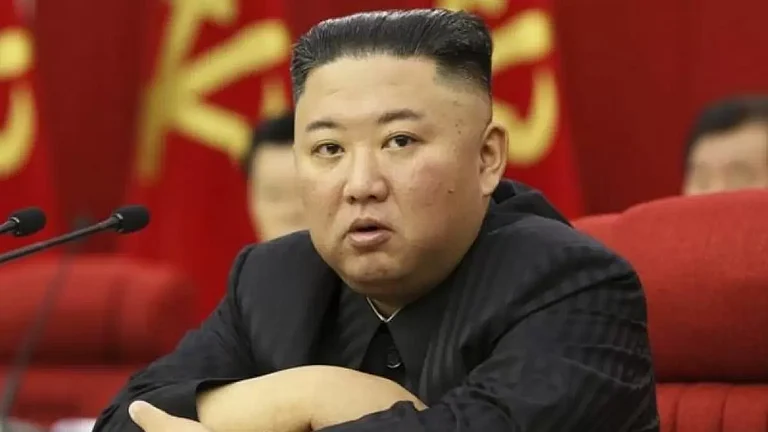North Korea's attempt to launch a new military reconnaissance satellite ended in failure on Monday when a newly developed rocket engine exploded in flight, state media reported. The launch, which came just hours after Pyongyang announced its intentions to launch a satellite by June 4, is the country's latest failure in its space program, following two other fiery crashes last year.
North Korea’s Attempt To Put New Spy Satellite In Orbit Fails As Rocket Explodes
North Korean leader Kim Jong Un has said spy satellites will allow his military to better monitor U.S. and South Korean military activities and enhance the threat posed by its nuclear-capable missiles.

“The launch of the new satellite carrier rocket failed when it exploded in mid-air during the flight of the first stage,” the deputy director general of North Korea’s National Aerospace Technology Administration said in a report carried by state media.
An initial analysis suggested that the cause was a newly developed liquid fuel rocket motor, but other possible causes were being investigated.
The launch attempt was closely monitored by neighbouring countries, with officials in South Korea and Japan reporting that the launch seemed to have failed. Japan's Prime Minister's Office issued a missile alert for the island of Okinawa following the launch, but it was lifted soon after.
North Korea had notified Japan's coast guard about its plans to launch "a satellite rocket" earlier on Monday, warning of a launch window from Monday through June 3.
The U.N. bans North Korea from conducting any satellite launches, viewing them as covers for testing long-range missile technology. North Korea has steadfastly maintained it has the right to launch satellites and test missiles.
North Korean leader Kim Jong Un has said spy satellites will allow his military to better monitor U.S. and South Korean military activities and enhance the threat posed by its nuclear-capable missiles.
Monday's launch came hours after the leaders of South Korea, China and Japan met in Seoul in their first trilateral meeting in more than four years. It’s highly unusual for North Korea to take provocative military action when China, its major ally and economic pipeline, is engaging in high-level diplomacy in the region.
(With AP inputs)
- Previous Story
 'That’s The Thing You Want To Hit': Trump Urges Israel To Hit Iran's Nuclear Sites Amid Rising Middle East Tensions
'That’s The Thing You Want To Hit': Trump Urges Israel To Hit Iran's Nuclear Sites Amid Rising Middle East Tensions - Next Story

























